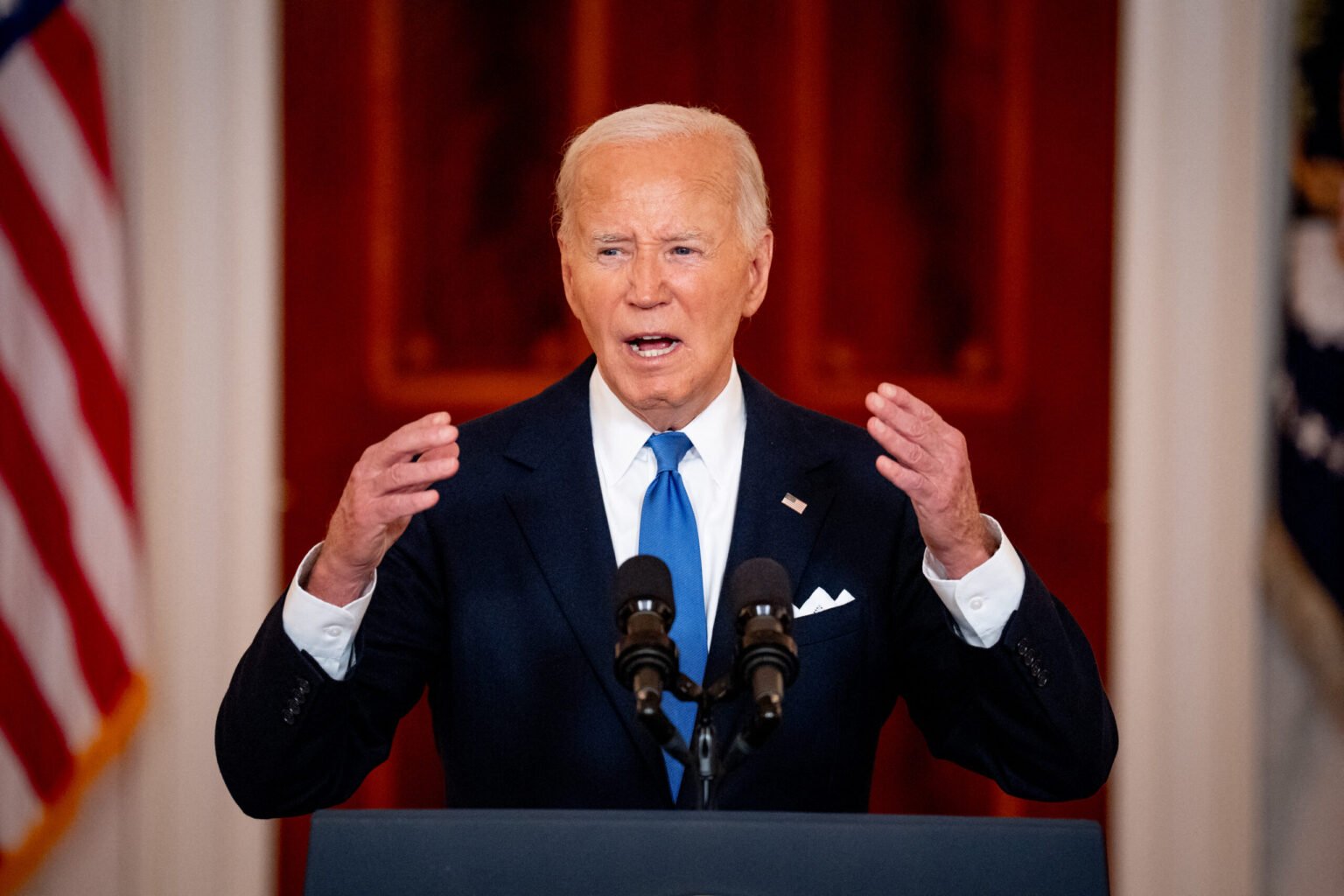In his concluding speech at the United Nations General Assembly, U.S. President Joe Biden emphasized the urgent need to halt the ongoing conflict in Gaza and cautioned against the potential for a broader war in Lebanon, asserting that such an outcome would not benefit anyone.
Biden addressed world leaders, drawing attention to the dire humanitarian conditions in Gaza, where the civilian population has faced immense suffering. He remarked, “Innocent civilians in Gaza are going through hell,” highlighting the devastating death toll that has exceeded 41,000 due to Israeli airstrikes.
He called for a ceasefire and urged Hamas to finalize terms for releasing hostages and alleviating the humanitarian crisis in Gaza.
As the situation deteriorates, with over 550 casualties reported from Israeli assaults in Lebanon, Biden stressed the importance of diplomatic efforts to restore peace in the region. “The situation is grave, but a diplomatic solution remains possible,” he asserted, advocating for international cooperation to ensure the safety of civilians on both sides of the border.
Reflecting on his presidency, Biden shared mixed feelings about his potential candidacy for a second term. “Becoming the President of the United States has been the greatest honor of my life,” he stated, but he also expressed a desire for a new generation to assume leadership, emphasizing the need to prioritize the people’s needs over personal ambition.
Biden also addressed the ongoing conflict in Ukraine, asserting that Russian President Vladimir Putin’s attempts to destabilize the country have failed. “We cannot tire; we cannot look back, and we will not stop supporting Ukraine until it achieves a just and lasting peace,” he declared.
In his speech, Biden extended his concerns to the humanitarian crisis in Sudan, urging the international community to avoid arming rival factions and to unify efforts to end the conflict. He announced a commitment of 1 million m-pox vaccines to African nations facing health emergencies, underscoring the necessity for swift action against the spread of the virus.
Biden concluded by calling for international collaboration to combat climate change and address the challenges posed by artificial intelligence. He warned that while AI has transformative potential, it also poses risks, including misinformation and bioweapons. “We must prepare our citizens for the future, which will see more technological change in the next two to ten years than we have seen in the last 50 years,” he noted.
In contrast, Turkish President Recep Tayyip Erdoğan delivered a sharp critique of the United Nations during his address, condemning its inability to stop the ongoing violence in Gaza and demanding immediate action to protect Palestinian civilians. He questioned how long the world would tolerate witnessing the massacre of Palestinians.
Erdoğan characterized the UN as ineffective, serving the interests of a few nations instead of fulfilling its core mission of maintaining global peace and security. “The United Nations has failed in its primary mission, becoming a dysfunctional structure at the mercy of just five countries,” he stated.
He likened Israel’s military operations in Gaza, led by Prime Minister Benjamin Netanyahu, to a “network of massive massacres” and demanded an immediate ceasefire, labeling the ongoing violence as genocide against the Palestinian people. He condemned those supporting the Israeli government as complicit in these acts.
“Today, Gaza stands as the largest graveyard for women and children,” Erdoğan lamented, drawing attention to the humanitarian crisis in the region. He emphasized that the treatment of Palestinians, especially in Israeli prisons, reflects a significant moral decline in global values. “Are the people of Gaza and the occupied West Bank not human? Do they not have rights?” he questioned.
Erdoğan criticized the U.S. for allegedly undermining ceasefire efforts while simultaneously providing arms to Israel, enabling the continuation of hostilities. He called for the international community to impose coercive measures against Israel and suggested a reassessment of the UN General Assembly’s authority to recommend force, similar to past resolutions aimed at maintaining peace.
The Turkish president urged the UN Security Council to take decisive action regarding the Gaza conflict, insisting on the need for an immediate and permanent ceasefire, the exchange of hostages and prisoners, and the unobstructed delivery of humanitarian aid to Gaza.
Highlighting the conflict’s severe toll, Erdoğan reported that since October 7, over 41,000 Palestinians, including a significant number of women and children, have died due to Israeli attacks. He condemned the targeting of essential services, noting that 172 journalists and over 500 medical personnel have been killed while attempting to fulfill their duties in extremely perilous conditions.


